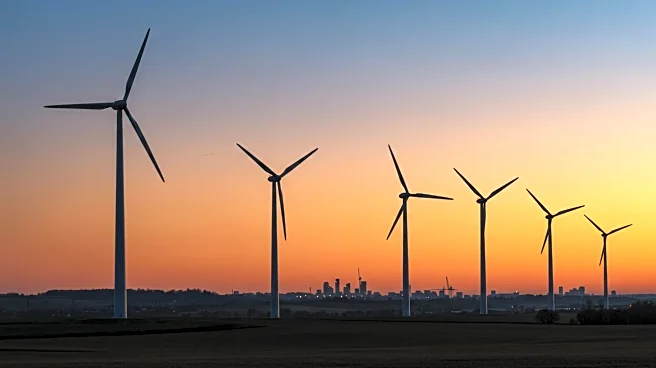What's Happening?
Electricity prices in Washington state are increasing at a rate faster than the national average. In May 2024, the cost was 12.14 cents per kilowatt hour, which rose to 13.67 cents by May 2025, marking a 12.6% increase compared to the national average increase of 6.5%. Despite this rise, Washington's electricity costs remain below the national average of 17.47 cents per kilowatt hour. Factors contributing to the price hike include efforts to upgrade the state's electric grid and meet a mandate to be carbon-neutral by 2030. Additionally, the growing demand from data centers is significantly impacting electricity consumption.
Why It's Important?
The rising electricity prices in Washington state have significant implications for residents and businesses. As the state works towards a carbon-neutral future, the financial burden of infrastructure upgrades and increased energy demand could affect economic stability. Residents may face higher utility bills, impacting disposable income and potentially leading to increased living costs. Businesses, particularly those reliant on high energy consumption, may experience increased operational costs, affecting profitability and competitiveness. The situation underscores the challenges of transitioning to sustainable energy while balancing economic impacts.
What's Next?
Washington state utilities are expected to continue investing in infrastructure upgrades to meet the 2030 carbon-neutral mandate. This may lead to further price increases as the demand for electricity grows, driven by population growth and the expansion of data centers. Stakeholders, including policymakers and utility companies, may need to explore strategies to mitigate the financial impact on consumers and businesses. Potential measures could include incentives for energy efficiency and investments in renewable energy sources to stabilize costs.
Beyond the Headlines
The push towards carbon neutrality in Washington state reflects broader environmental and policy shifts. As states across the U.S. adopt similar mandates, the balance between sustainable energy goals and economic impacts will be crucial. The situation in Washington may serve as a case study for other regions, highlighting the need for comprehensive planning and stakeholder engagement to ensure a smooth transition to cleaner energy.










